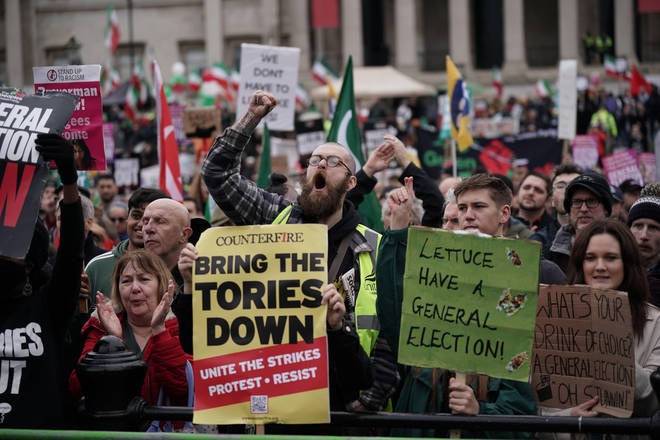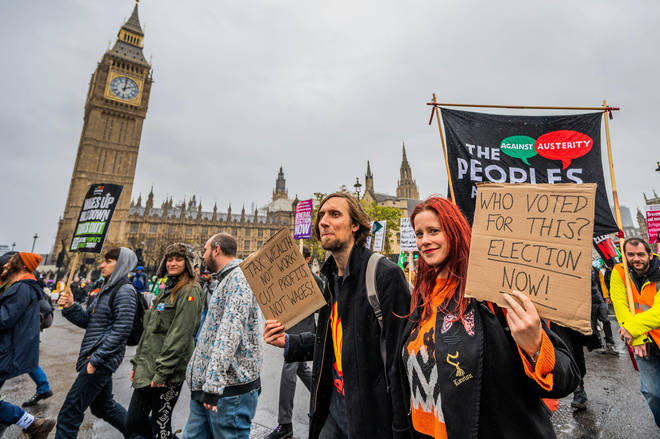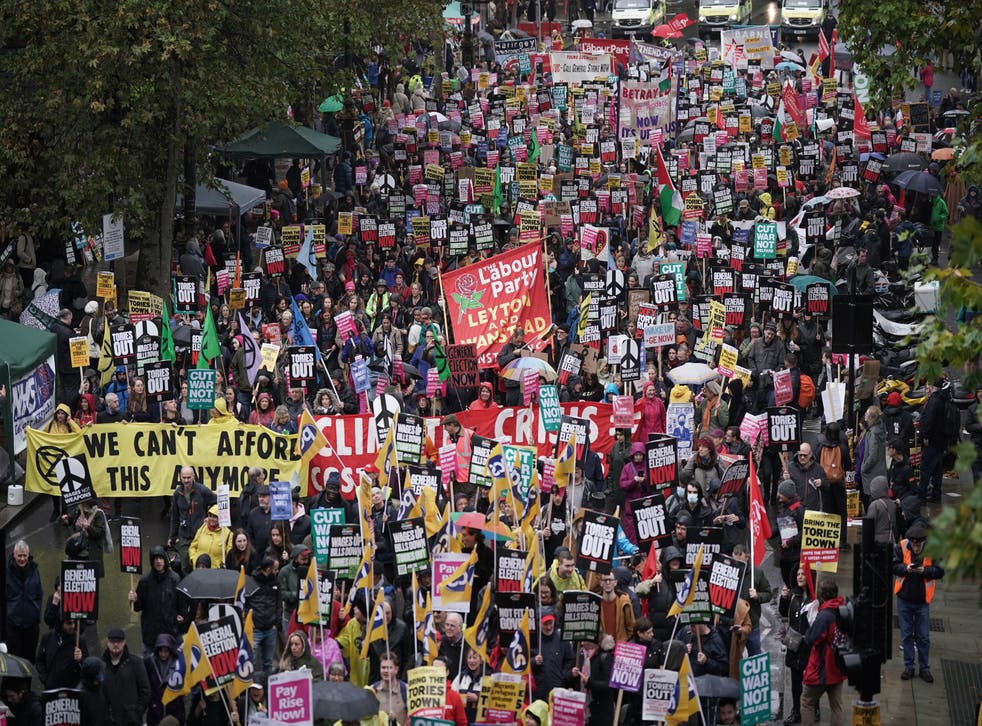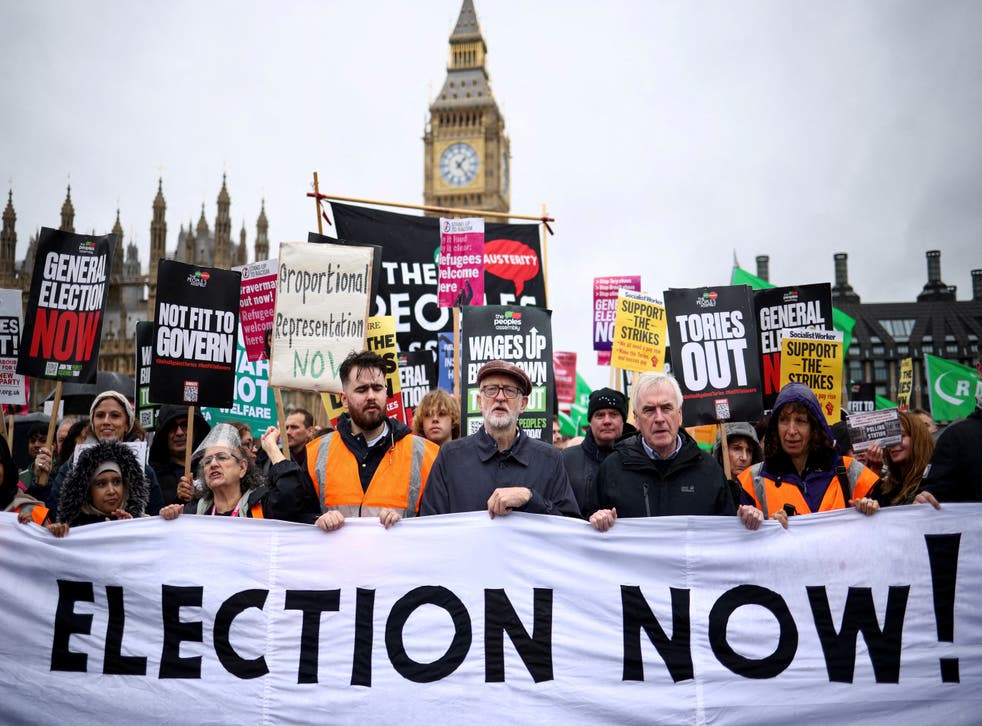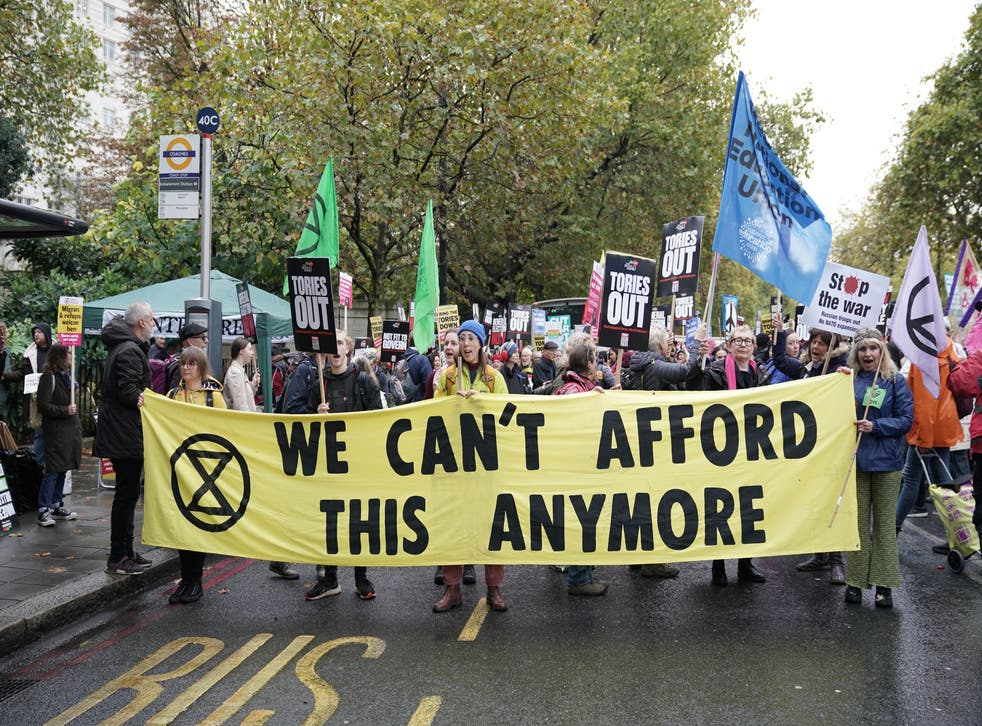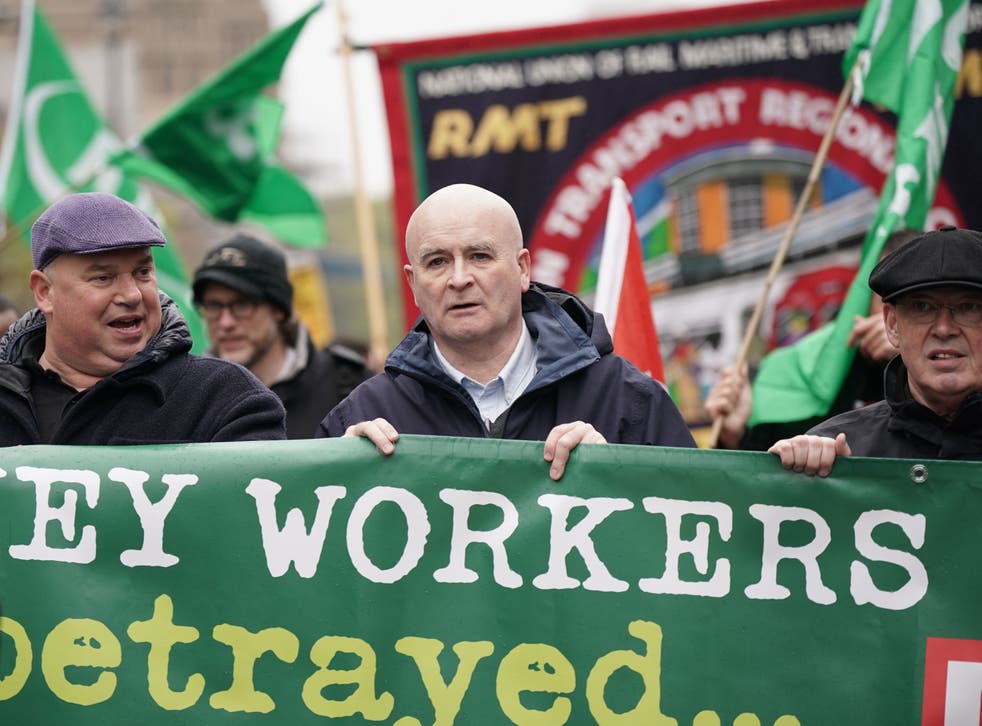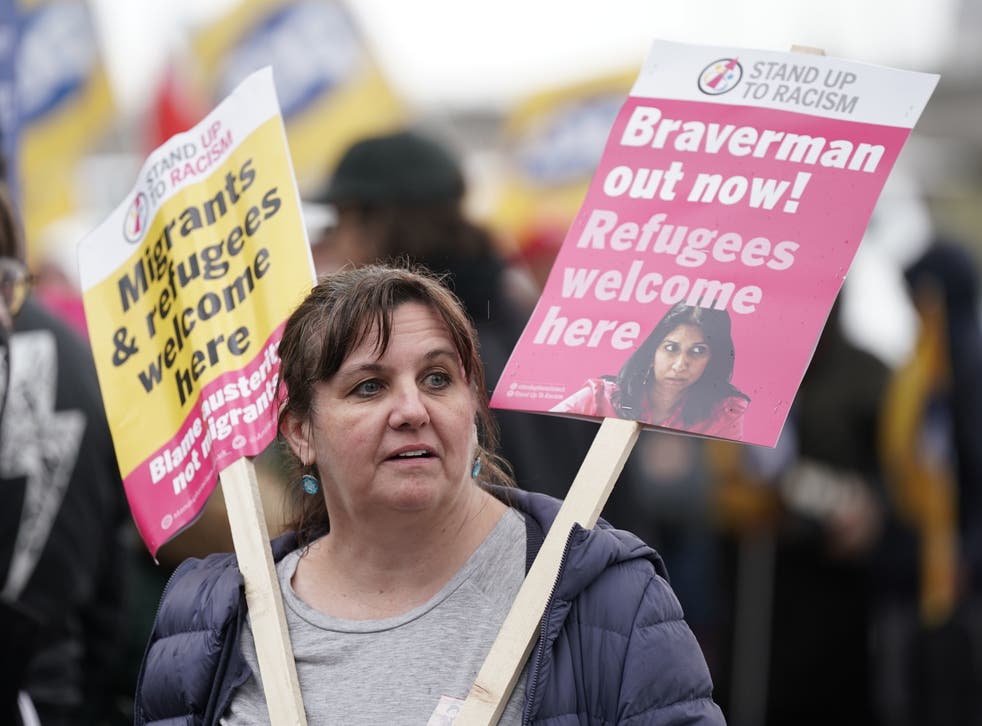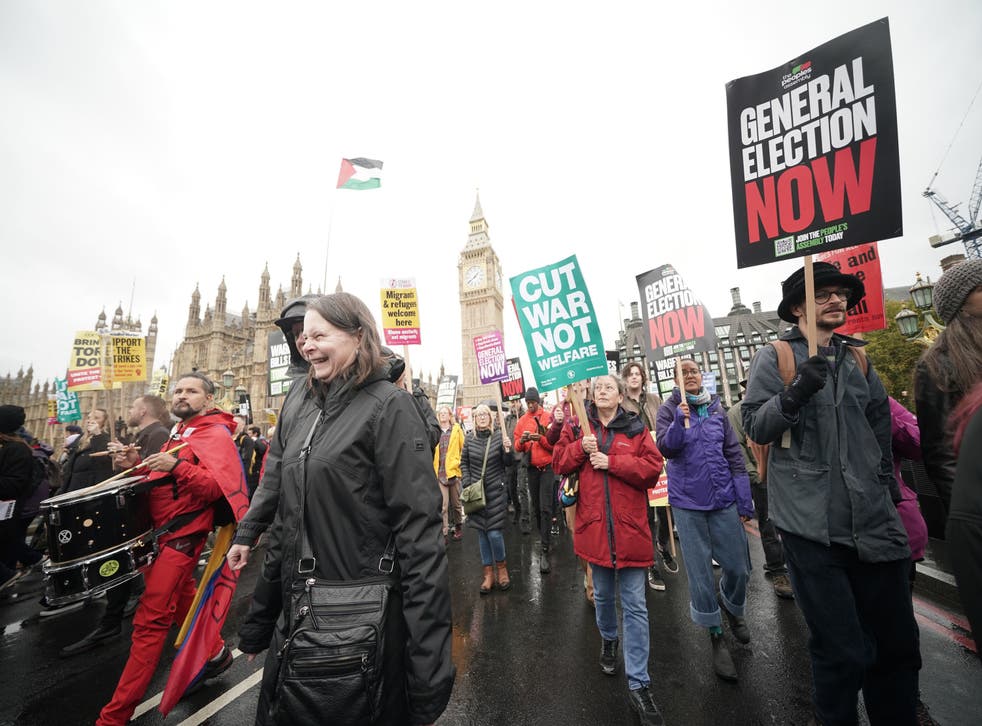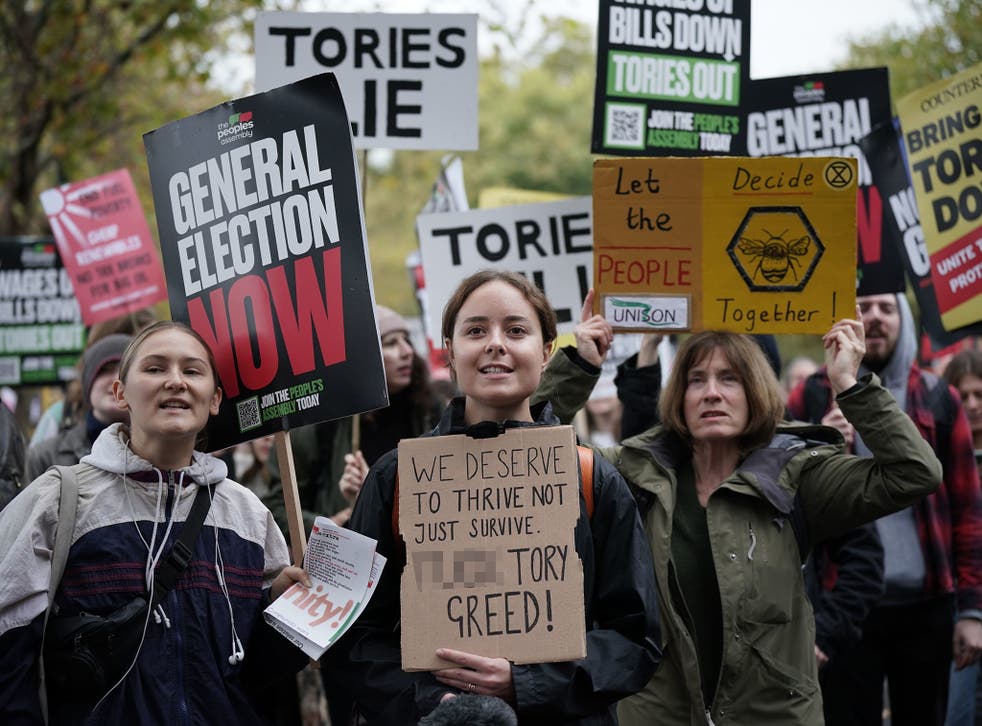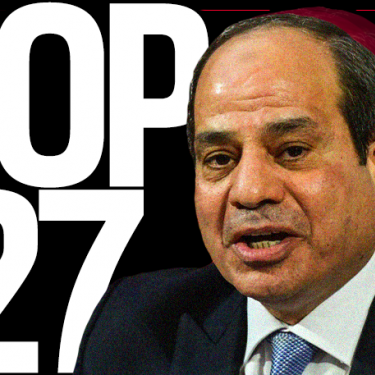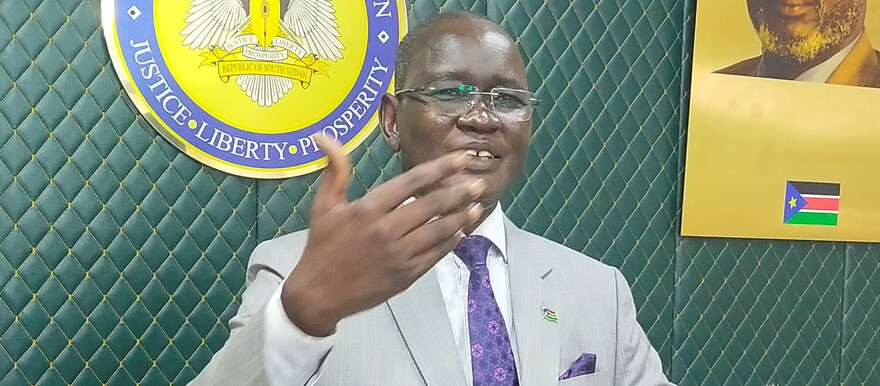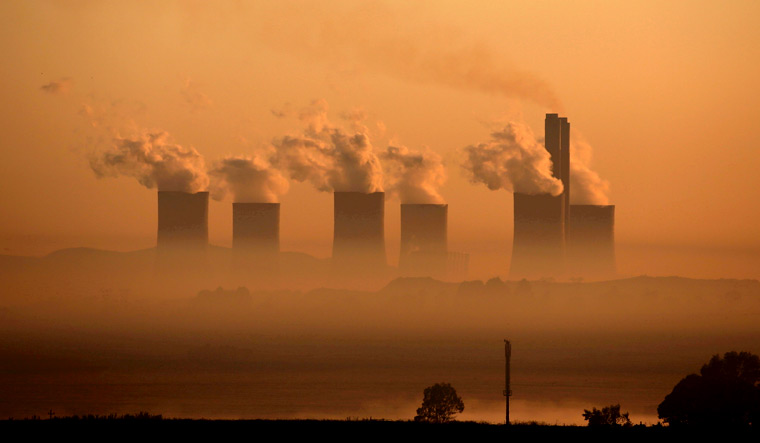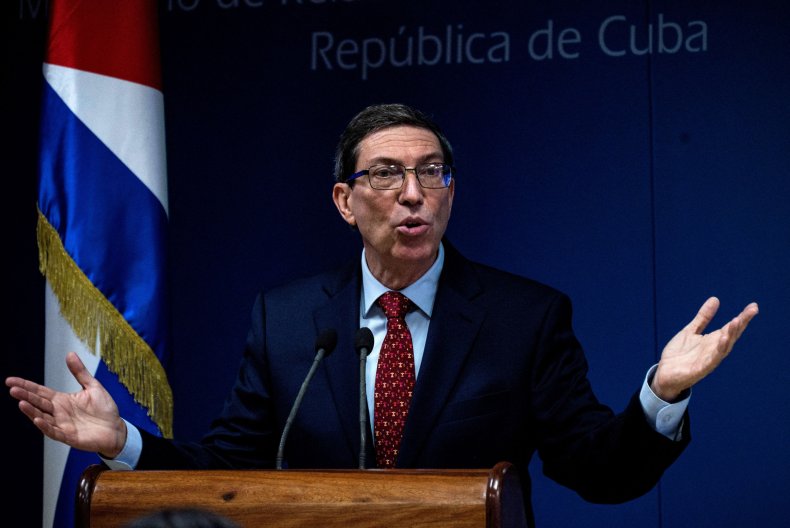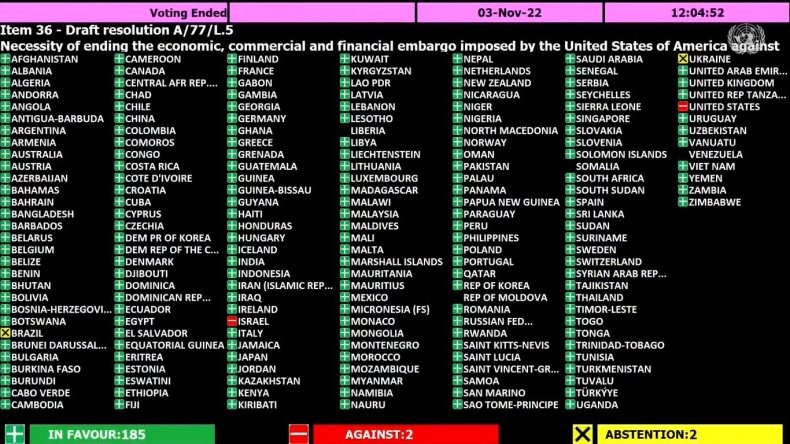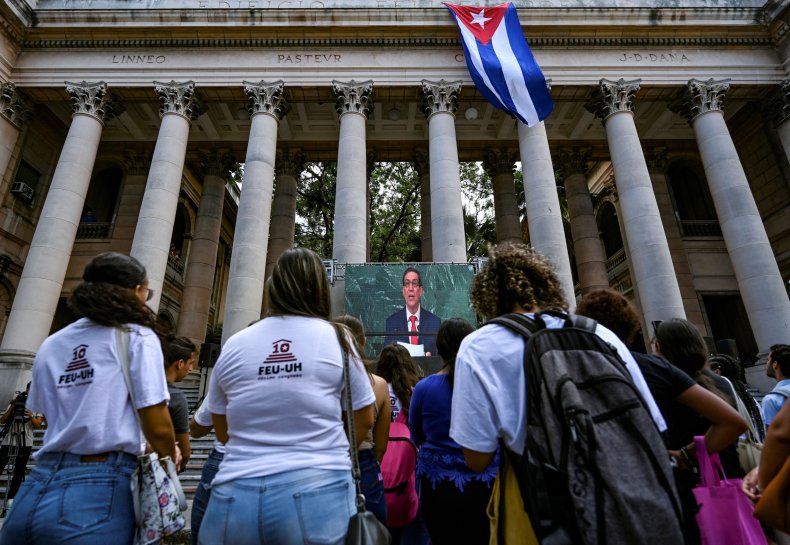
BY Michelle Chen,
Gabe, a veteran train conductor on the West Coast, thinks the contract proposal that his union hammered out with rail carriers last month is insulting — condemning tens of thousands of freight train operators to brutal, exhausting schedules with barebones crews — but he also knows that if his union votes it down, potentially pushing the union toward a strike, even mass industrial action would likely end with the same deal. Nonetheless, he said, “Even if this was going to get stuffed down our throats, I want to go on strike and make them bleed a little money and make them hurt for a little bit. You know what I mean? If we have to, at least I could give ’em a kiss.”
The kiss would still have consequences. The Association of American Railroads (AAR), the trade association representing top rail carriers, has estimated that a nationwide freight rail strike could cost $2 billion a day. Warnings of the devastating economic consequences echo a long history of labor unrest on the rails going back to the Gilded Age revolt by Pullman railcar workers, which triggered a nationwide wave of sympathy strikes and boycotts that federal troops eventually quashed. But for the past century, the Railway Labor Act has effectively preempted such disruption with a byzantine process of mediation and federal intervention to pressure unions and carriers into an agreement. The impasse in contract talks in August triggered an investigation by a Presidential Emergency Board (PEB) appointed by the Biden administration, followed by a last-minute tentative agreement brokered by Secretary of Labor Marty Walsh and other officials. If the unions’ rank and file reject the agreement, they will have to return to the bargaining table with a new timeline, and if that process is exhausted, workers could then mobilize for a strike. Under the Railway Labor Act, however, Congress would likely halt the strike through legislation.
A ratification vote is still pending for most of the workers covered by the proposed compromise agreement that was negotiated between the rail carriers and the conductors’ and engineers’ unions. Those unions, SMART Transportation Division and the Brotherhood of Locomotive Engineers and Trainmen (BLET), together represent about half of the country’s railroad workforce. Several other railroad unions have approved similar contract proposals. Although the agreement pushed the next potential strike deadline to November 19 — a so-called “cooling off” period during which there are no strikes or lockouts — potential for a strike has resurfaced in October: The Brotherhood of Maintenance of Way Employees Division (BMWED), which represents track maintenance and repair workers, voted no in early October on a parallel tentative agreement, and weeks later, the Brotherhood of Railroad Signalmen rejected the deal that is still pending before SMART and BLET. Both unions, which could now individually renegotiate deals with the carriers, were apparently driven by dissatisfaction with paltry paid sick leave provisions
If just one of the 12 unions strikes, the others would refuse to cross the picket line and effectively shut down the nation’s railway infrastructure.
SMART and BLET’s tentative agreement, based on the PEB recommendations, would offer a cumulative 24 percent pay raise from 2020 to 2024, including retroactive raises. The AAR boasted that the tentative agreement offered “the most substantial wage increases in decades — with average rail worker wages reaching about $110,000 per year by the end of the agreement.” The union leadership has presented the tentative agreement as a necessary compromise. (Neither union responded to Truthout’s requests for comment.) But rank-and-filers are frustrated that the agreement left three major issues unaddressed: unstable on-call schedules, understaffing and a lack of paid leave.
Under the on-call scheduling scheme, workers are typically placed in a rotating job queue. Workers on an “extra board” are slotted in whenever a coworker calls out sick so that the necessary shifts are filled. With constantly shifting job assignments, workers are called up with scant notice; workers complain that it is extremely difficult to make family plans or get adequate rest with no set weekends or off days, and that taking leave is often penalized through a points-based attendance system.
“You may sleep all day trying to get rest because you think you’re going to work a night shift. Then you’re up all night because you slept all day,” said Gabe, who is also active with the rank-and-file group Railroad Workers United (RWU), and who asked to be identified only by his first name for fear of retaliation. “And then finally at 6 in the morning, the phone rings for you to go to work. And by the time you get to where you’re going, you’ve been up for 24, 30 hours.” A 12-hour trip in one direction can stretch to about 64 hours of total travel time, because workers must wait to catch a train home. The limited rest time can also undermine safety on the rails, he noted, because “when people are fatigued, they’re not always thinking clearly. They’re not focused. And we’re a really safety-sensitive industry where you have to be paying attention all the time. You’re constantly multitasking. The equipment [will] kill or maim you, if you get hit by it.”
The tentative agreement brokered by union leadership would provide one additional paid day off per year and three unpaid leave days for medical appointments without being disciplined. Unions had pushed for up to 15 paid leave days. Even the meager medical leave provisions come with tight restrictions. Medical leave will be permitted only with 30 days advance notice, and only on Tuesday, Wednesday or Thursday.“Even if this was going to get stuffed down our throats, I want to go on strike and make them bleed a little money…”
Gabe suspects that the extra paid off-day in the tentative agreement might in many cases not be accessible for workers in practice, because the management often rejects workers’ requests for leave. He added that he qualifies for multiple leave days due to his seniority, but still has eight left this year, “because they will not approve them. So, they could give me 300 personal leave days and if they [don’t have] to let me use them when I want to, then what good are they?”
Both the carriers and the PEB dismissed unions’ demands for an overhaul of attendance policies in the national contract talks, and stressed that workers’ disputes over leave policies could be negotiated separately in the grievance and arbitration processes.
In a statement, the AAR said, “All railroads have work rules and policies designed to balance employees’ need to take time off with the need to maintain safe, ongoing operations,” and that the railroads that use points systems “all provide employees with the flexibility to take reasonable amounts of time off” as well as “a way to challenge attendance-related actions that they believe may have been unwarranted.”
On October 24, facing another impasse in negotiations following BMWE’s “no” vote, the reform caucus BMWE Rank and File United rebuffed the carriers’ insistence that workers already had adequate sick pay protections: “A vast majority of our membership lives paycheck to paycheck. Taking unpaid 4 days off to care for a sick child or ourselves is a choice many have to make whether to rest up at home and get better, or go to work, and possibly get sicker.”
In a survey of more than 3,100 railroad workers conducted in August by RWU, 93 percent of respondents said they would vote to reject the PEB’s recommendations if it were offered as a proposed deal, and over 95 percent said “railroaders should exercise their right to strike” on or after the strike deadline. RWU itself urges a “no” vote, contending that while carriers like CSX have seen surging profits, “We sacrifice our health, well-being, and lives for the company. We deserve a share of the enormous wealth we have created for them. We are worth more.”
Hugh Sawyer, a 34-year veteran locomotive engineer for Norfolk Southern and treasurer of RWU, told me in an interview for the “Belabored” podcast, the pandemic may have “set something off across this country” by getting workers to rethink what they’re willing to sacrifice for their jobs. “People have reprioritized their lives and realized that these jobs, be it in the railroad industry or wherever, are not the end-all, and that, you know, we want time at home and for a life outside the railroad…. The carriers, on the other hand, have decided that we’re just blue-collar labor to be mistreated. They don’t care about us having a lifestyle outside of the railroad.”
The volatile schedules of railroad workers are the product of the industry’s relentless pursuit of “efficiency.” Under a framework known as Precision Scheduled Railroading, carriers have sought to “streamline” rail operations by imposing the “lean” production model popularized by manufacturers and logistics companies in recent years — slashing staff and shipping times and moving as much freight as possible on each trip. At the same time, according to the Surface Transportation Board, the carriers have cut about 45,000 jobs, or nearly 30 percent of the railroad workforce, in just the past six years.
In addition to the two “no” votes by other railroad unions, the pending votes by the large operating craft unions, which are most impacted by on-call scheduling, will be another test of workers’ willingness to leverage their most powerful weapon.
Mark Burrows, a RWU member and recently retired locomotive engineer, said the union leadership is pressuring workers to ratify the tentative agreement under “the threat of the gun to the head,” claiming that while members may not like the terms of the proposal, they should agree “because we don’t want a third party, i.e., Congress and the president, writing our contract.”
Given the potential economic disruption, Burrows said many railroad workers would want to stage a work stoppage only as “the last desperate resort — to make a stand…. And we just feel that if the public really knew and understood what the issues were, that that groundswell of public support [would need] to be directed through towards the carriers, to do right, to treat rail workers with some semblance of dignity.”If just one of the 12 unions strikes, the others would refuse to cross the picket line and effectively shut down the nation’s railway infrastructure.
The last railway strike, in 1992, which was initiated by the International Association of Machinists and prompted a mass shutdown by railroads, lasted two days before Congress squelched it by passing emergency legislation for arbitration. It forced the unions and carriers into another round of negotiations, in which an arbitrator could unilaterally impose a contract and submit it to the president for approval — a move that, at the time, the AFL-CIO said “punishes workers by taking away their right to strike.”
The growing militancy of the railroad worker unions resonates with other unrest in logistics labor in recent months. West Coast longshore workers are locked in tense negotiations with employers; Canadian longshore and tugboat worker strikes have roiled the Port of Vancouver; Britain’s transport infrastructure has been rocked by both port and rail strikes.
Todd Vachon, an assistant professor in the Department of Labor Studies and Employment Relations at Rutgers University, believes Congress would force a resolution no more palatable to workers than the proposed deal, especially if Democrats lose their majority.
“Would the [Democrats] be more willing to do something for the workers in that instance because the election already passed, or not?” he asked. “I don’t know.… But I think at the very least, the workers are just demonstrating that they are really concerned with the health and safety and work-life balance issues. And it’s not the money. It’s those pieces of having a voice on the job and having the ability to take care of oneself and one family.”
Yet the long-term fight for just jobs on the railways will depend on whether workers can advance an alternative vision for the nation’s rail infrastructure. RWU wants to see the railroads owned not by an oligopoly of massive corporate carriers, but by the public, citing a period when the federal government did effectively nationalize the railways for about two years during World War I. The Great Depression also spurred railroad union leaders to champion a government takeover of the railways to protect jobs.
While nationalizing the railroads may be a distant dream for now, the decision immediately before the unions — whether to reject the deal on offer — is about exercising power over their working conditions. It’s about reclaiming a vocation that, for Gabe, is still a calling: “I love my job. I hate who I do it for, you know what I mean? And I wish we could be looked at as more than equipment. And that’s how they treat us.”
Michelle Chen is a contributing editor at Dissent Magazine, and a contributing writer at The Nation, In These Times and Truthout. She is also a co-producer of the “Asia Pacific Forum” podcast and Dissent Magazine’s “Belabored” podcast, and teaches history at the City University of New York. Follow her on Twitter: @meeshellchen.

